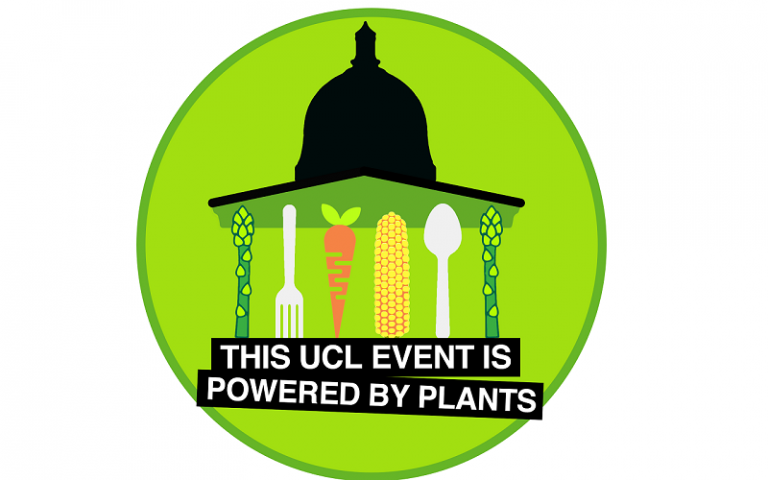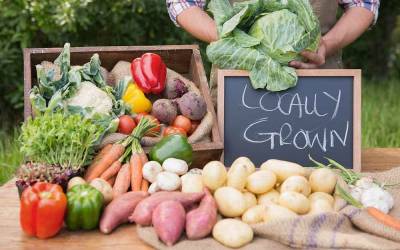Powered by Plants
'Powered by Plants' is a UCL-wide campaign to reduce the carbon footprint associated with UCL's catering.

19 November 2019
The campaign began when Green Champions within the Psychology and Language Sciences Division (PALS) raised the question of whether the department could provide 100% vegetarian catering across events and meetings. They felt this would enhance the health and wellbeing of staff and students and would be a positive action in the face of the Climate Emergency.
Why go vegetarian?
- If all departments switched to 100% vegetarian catering, UCL’s food emissions would be reduced by 40%, saving ~5,000 tonnes CO2 per annum, equivalent to taking 1,000 cars off the road (4).
- The meat and dairy industry produces 60% of agriculture’s greenhouse gas emissions (2) and it is considered to be the leading cause of species extinction, ocean dead zones, water pollution, habitat destruction and land desertification (3).
- There is now compelling scientific evidence that reducing meat consumption improves health (5) and reduces the risk of some of the leading causes of death today including cardiovascular disease, some cancers, type 2 diabetes and bowel cancer (6).
- 12 UCL departments contributed to the Lancet Countdown which concluded that "tackling climate change could be the greatest opportunity for global health in the 21st century" (7).
References
- IPCC. Summary for Policymakers of IPCC Special Report on Global Warming of 1.5°C approved by governments [Internet]. 8 October 2018. [Accessed 28 April 2019]; Available from: https://www.ipcc.ch/2018/10/08/summary-for-policymakers-of-ipcc-special-report-on-global-warming-of-1-5c-approved-by-governments/
- Watts N, Adger N, Ayeb-Karlsson S, Bai Y and Byass P. The Lancet Countdown: tracking progress on health and climate change 2017; 329(10074); 1151-1164.
- Machovina Brian, Feeley K and Ripple W. Biodiversity conservation: The key is reducing meat consumption. 2015; 536(2015);419-431
- Based on data on current UCL hospitatlity provision and carbon factors from Espinoza-Orias N, et al. 2018, Understanding the impact on climate change of convenience food: Carbon footprint of sandwiches, Sustainable Production and Consumption
- Craig, W. Health effects of vegan diets. 2009;89(5): 1627S – 1633S
- NHS. Red meat and the risk of bowel cancer [Internet]. No date. [Accessed 28 April 2019]; Available from: https://www.nhs.uk/live-well/eat-well/red-meat-and-the-risk-of-bowel-cancer/
- Watts N, Adger N, Ayeb-Karlsson S, Bai Y and Byass P. The Lancet Countdown: tracking progress on health and climate change 2017; 329(10074); 1151-1164.
 Close
Close


